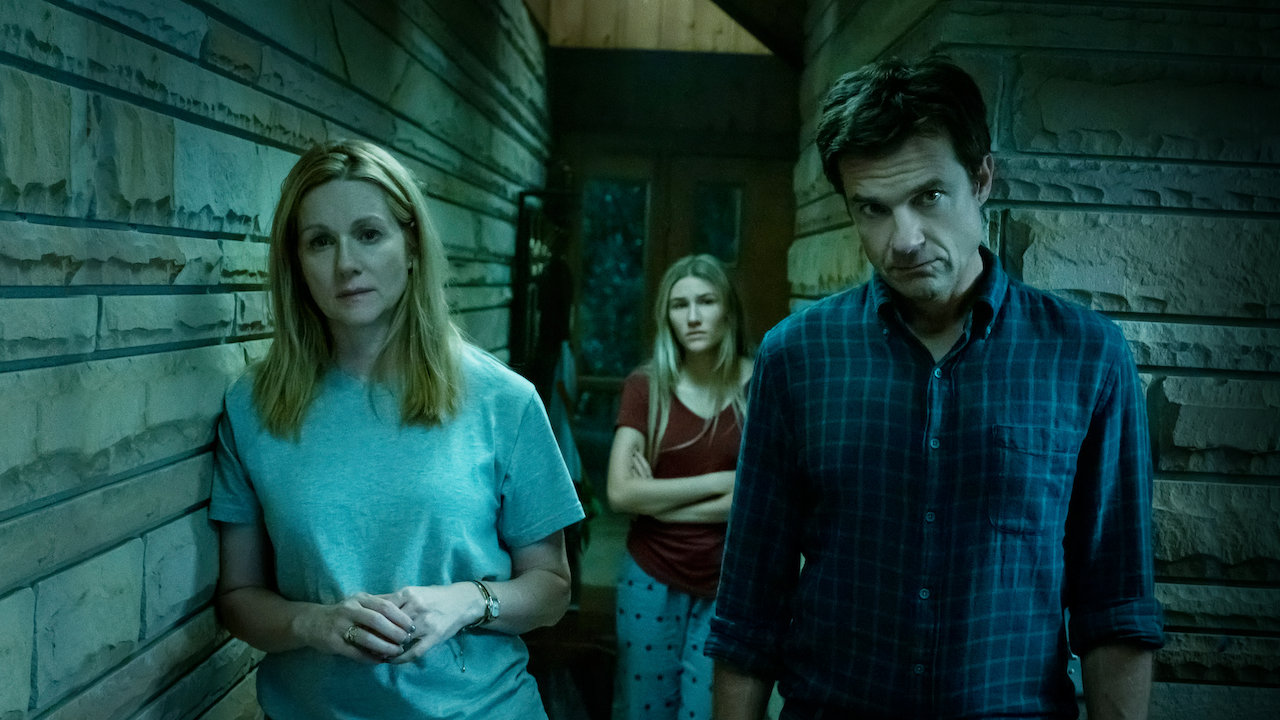What makes Ozark the perfect awards season bait?
Netflix's Ozark has become a surprisingly regular feature at the Emmys. What makes the series such potent awards bait?

The latest updates, reviews and unmissable series to watch and more!
You are now subscribed
Your newsletter sign-up was successful
Want to add more newsletters?

ONCE A WEEK
What to Watch
Get all the latest TV news and movie reviews, streaming recommendations and exclusive interviews sent directly to your inbox each week in a newsletter put together by our experts just for you.

ONCE A WEEK
What to Watch Soapbox
Sign up to our new soap newsletter to get all the latest news, spoilers and gossip from the biggest US soaps sent straight to your inbox… so you never miss a moment of the drama!
If you love films and spend way too much time thinking about awards shows like the Emmys or the Oscars, then the chances are that you are familiar with the concept of awards bait. Every year, as the movie world gears up for the exhausting delight that is awards season, a slew of titles enters the fray that, for better or worse, are deemed to be the kind of stories that are just desperate to receive golden statues and standing ovations. You know the films I’m talking about: the well-manicured historical dramas full of lavish costuming and many a stiff upper lip. The inspiring biopics about tortured geniuses and their supportive wives. Acting tour de forces where a performer spent months in character and even longer bragging about it to the press. Is there a movie dropping this year featuring a beloved actor playing a familiar face, complete with prosthetics and noticeable weight gain/loss, preferably one that tells a story close to Hollywood or one full of things being smashed? If so, then you can bet that it’s being called the awards bait of the season.
This concept is mostly discussed in terms of films because of the specific nature of marketing and publicity that goes into the annual awards race leading up to the Oscars. It’s a process that requires a cycle of tried-and-tested tools, from schmoozing at the right parties to glossy magazine interviews wherein the director wears a fancy scarf and discusses their inspirations. With every year, there’s a new set of movies to consider. Compare this to the landscape of television, where shows can run for many seasons and re-enter the awards conversations with regularity. This makes the idea of awards bait for TV much trickier to pin down. Yet, every now and then, there’s a TV series that doesn’t go away, one that appears on Emmy ballots with such inevitability, even if critics don’t entirely agree with its placement. Consider how Frasier was the Television Academy’s most beloved comedy in the 1990s, long after it passed its prime, or the domination of Veep and Game of Thrones in the 2010s, even as the latter became a contentious topic.
And then there is Ozark.
The series stars Jason Bateman as a former financial advisor who sets up a drug smuggling and money laundering scheme in the Ozarks region of Missouri as amends for a high-price deal gone wrong. Netflix's crime thriller premiere in 2017 and was warmly received by critics. According to Nielsen, the third season of the show garnered an average minute audience rating of 8.7 million viewers in its first ten days of availability, making it one of the most-watched shows on the streaming service.
It's not that Ozark is a bad show or is undeserving of critical acclaim, but its continued presence at the Emmys has garnered it the label of awards bait in a way that is rare for modern TV. At last year's Emmys, for example, Julia Garner won Best Supporting Actress in a Drama series over four separate actresses from Game of Thrones in that show's much-hyped final season. Jason Bateman also won a directing award over the likes of Succession, Game of Thrones, and The Handmaid's Tale, all of which received more lavish praise, from critics.
Netflix has only been making original programming for seven or so years. In the context of American TV, they are still one of the youngest kids at the table. What they do possess, however, is immense financial clout. Netflix was willing to throw everything at the wall to see what stuck in an attempt to get the legitimacy and attention of the industry that seemed so hesitant to welcome them in. Their awards campaigns for the Emmys (and, later, the Oscars) were notoriously flush with cash. Variety reported that Netflix was spending tens of millions of dollars on its Emmy campaigning. This was seen as a worthwhile strategy as awards attention could lead to more paying subscribers. It also put Netflix head and shoulders above the competition because the traditional networks simply could not keep up.
It also helps that shows like Ozark are perfectly primed for awards attention. Established stars, like Jason Bateman and Laura Linney in the lead roles, a dark, socially relevant story with occasional tear-jerking moments and an ensemble of morally grey characters. Even the ways the show is mocked are considered awards-friendly — such as its almost impenetrably dark cinematography that has still received multiple Emmy nominations. If a show looks prestigious by the standard definition of the term (high production values, muted color palate) then the job’s half-done.
The latest updates, reviews and unmissable series to watch and more!
Ozark will wrap up after season 4 — bringing an end to the first show in Netflix’s domination of original programming. The company seems destined to continue this level of gargantuan success in the coming years, even as the streaming market becomes ever busier. This is the future of television, and Ozark is but one example of the medium's new status quo.
Kayleigh is a pop culture writer and critic based in Dundee, Scotland. Her work can be found on Pajiba, IGN, Uproxx, RogerEbert.com, SlashFilm, and WhatToWatch, among other places. She's also the creator of the newsletter The Gossip Reading Club.


